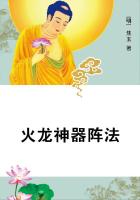But because, fair damsel, that ye love me as ye say ye do, I will, for your good will and kindness, show you some goodness, . . . and always while I live to be your true knight." Here are "amiable words and courtesy." I cannot agree with Mr Harrison that Malory's book is merely "a fierce lusty epic." That was not the opinion of its printer and publisher, Caxton. He produced it as an example of "the gentle and virtuous deeds that some knights used in these days, . . .
noble and renowned acts of humanity, gentleness, and chivalry. For herein may be seen noble chivalry, courtesy, humanity, friendliness, love, cowardice, murder, hate, virtue, and sin. Do after the good and leave the evil."In reaction against the bold-faced heroines and sensual amours of some of the old French romances, an ideal of exaggerated asceticism, of stainless chastity, notoriously pervades the portion of Malory's work which deals with the Holy Grail. Lancelot is distraught when he finds that, by dint of enchantment, he has been made false to Guinevere (Book XI. chap. viii.) After his dreaming vision of the Holy Grail, with the reproachful Voice, Sir Lancelot said, "My sin and my wickedness have brought me great dishonour, . . . and now Isee and understand that my old sin hindereth and shameth me." He was human, the Lancelot of Malory, and "fell to his old love again," with a heavy heart, and with long penance at the end. How such good knights can be deemed conscienceless and void of courtesy one knows not, except by a survival of the Puritanism of Ascham. But Tennyson found in the book what is in the book--honour, conscience, courtesy, and the hero -"Whose honour rooted in dishonour stood, And faith unfaithful kept him falsely true."Malory's book, which was Tennyson's chief source, ends by being the tragedy of the conscience of Lancelot. Arthur is dead, or "In Avalon he groweth old." The Queen and Lancelot might sing, as Lennox reports that Queen Mary did after Darnley's murder -"Weel is me For I am free."
"Why took they not their pastime?" Because conscience forbade, and Guinevere sends her lover far from her, and both die in religion.
Thus Malory's "fierce lusty epic" is neither so lusty nor so fierce but that it gives Tennyson his keynote: the sin that breaks the fair companionship, and is bitterly repented.
"The knights are almost too polite to kill each other," the critic urges. In Malory they are sometimes quite too polite to kill each other. Sir Darras has a blood-feud against Sir Tristram, and Sir Tristram is in his dungeon. Sir Darras said, "Wit ye well that Sir Darras shall never destroy such a noble knight as thou art in prison, howbeit that thou hast slain three of my sons, whereby I was greatly aggrieved. But now shalt thou go and thy fellows. . . . All that ye did," said Sir Darras, "was by force of knighthood, and that was the cause I would not put you to death" (Book IX. chap. xl.)Tennyson is accused of "emasculating the fierce lusty epic into a moral lesson, as if it were to be performed in a drawing-room by an academy of young ladies"--presided over, I daresay, by "Anglican clergymen." I know not how any one who has read the Morte d'Arthur can blame Tennyson in the matter. Let Malory and his sources be blamed, if to be moral is to be culpable. A few passages apart, there is no coarseness in Malory; that there are conscience, courtesy, "sweet lives," "keeping down the base in man," "amiable words," and all that Tennyson gives, and, in Mr Harrison's theory, gives without authority in the romance, my quotations from Malory demonstrate. They are chosen at a casual opening of his book. That there "had not arisen in the world" "the idea of reverencing conscience" before the close of the fifteenth century A.D. is an extraordinary statement for a critic of history to offer.
Mr Harrison makes his protest because "in the conspiracy of silence into which Tennyson's just fame has hypnotised the critics, it is bare honesty to admit defects." I think I am not hypnotised, and Ido not regard the Idylls as the crown of Tennyson's work. But it is not his "defect" to have introduced generosity, gentleness, conscience, and chastity where no such things occur in his sources.
Take Sir Darras: his position is that of Priam when he meets Achilles, who slew his sons, except that Priam comes as a suppliant;Sir Darras has Tristram in his hands, and may slay him. He is "too polite," as Mr Harrison says: he is too good a Christian, or too good a gentleman. One would not have given a tripod for the life of Achilles had he fallen into the hands of Priam. But between 1200B.C. (or so) and the date of Malory, new ideas about "living sweet lives" had arisen. Where and when do they not arise? A British patrol fired on certain Swazis in time of truce. Their lieutenant, who had been absent when this occurred, rode alone to the stronghold of the Swazi king, Sekukoeni, and gave himself up, expecting death by torture. "Go, sir," said the king; "we too are gentlemen." The idea of a "sweet life" of honour had dawned even on Sekukoeni: it lights up Malory's romance, and is reflected in Tennyson's Idylls, doubtless with some modernism of expression.
That the Idylls represent no real world is certain. That Tennyson modernises and moralises too much, I willingly admit; what I deny is that he introduces gentleness, courtesy, and conscience where his sources have none. Indeed this is not a matter of critical opinion, but of verifiable fact. Any one can read Malory and judge for himself. But the world in which the Idylls move could not be real.















